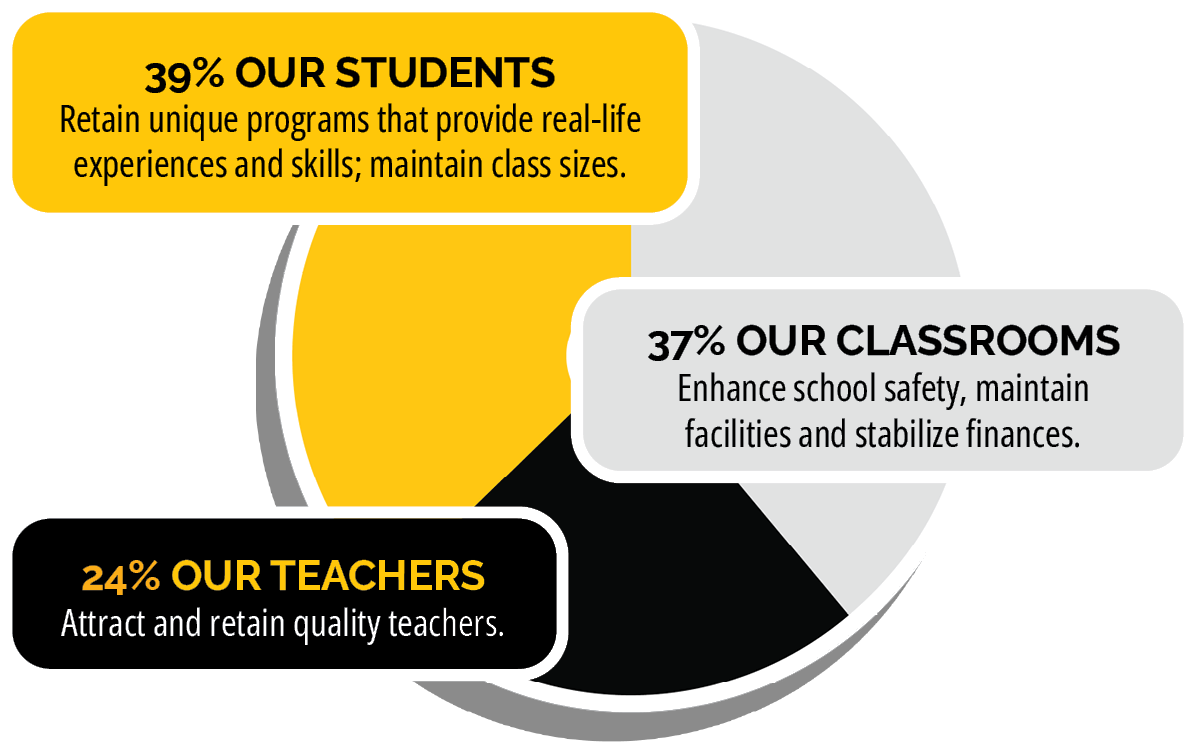THE PLAN
A fiscally responsible plan to serve our community for years to come.
Two Questions, Two Solutions
After months of community input and careful study, the Byron school board has developed a two-part approach to address our district's financial needs:
Question 1: Operating Levy
Provides $700 per pupil in general fund revenue to continue to:
Offer a broad range of academic and co-curricular programs.
Attract and retain high-quality and experienced teachers and staff.
Support classrooms.
Question 2: Capital Projects Technology Levy
Generates $250,000 annually dedicated specifically to classroom technology, cybersecurity, and school safety improvements. Question 2 can only pass if Question 1 passes.
The term for both levies is 10 years. (Updated 9/30/25)
What This Means for Our Students
If the referendum is approved, Our Students, our Teachers, and our Classrooms will benefit in the following ways:
Our Students
Sustain learning interventions
Preserve elective programs
Including extracurricular activities
Maintain/reduce class sizes
Updated cybersecurity
Our Teachers
Attract/retain high quality staff members
Update/replace classroom technology systems
Our Classrooms
Facility maintenance/upkeep
School safety
Stabilizing finances
How would the money be spent?
If both questions are approved, the money would support our classrooms, our teachers, and our students.
Technology Levy
A secure school starts with secure systems.
The technology levy would provide a stable funding source that would ensure a robust, secure, and future-ready infrastructure that protects our students, staff, and systems.
This levy supports:
Cybersecurity protections to defend against data breaches, ransomware, and other growing threats
Infrastructure upgrades (networks, servers, Wi-Fi, access points) critical for a safe and stable learning environment
Access controls and monitoring that protect sensitive data and keep our systems compliant with safety regulations
System reliability that prevents costly downtime and supports day-to-day operations across the district
A capital projects technology levy would support the systems that power the entire district behind the scenes and at the front door. This levy keeps our classrooms connected, our schools secure, and our teachers equipped to prepare students for the future.
SURVEY SAYS
89% Grade A or B
Community Survey respondents grade for the District’s teachers
85% Grade A or B
Community Survey respondents grade for the District’s quality of education
What Happens If the Referendum is Not Approved
The District would need to make further budget reductions for the 2026-2027 school year of at least $600,000 to maintain a positive fund balance through 2027-2028. These steps could include:
Reduce/eliminate intervention programs
Increase class sizes K-12
Reduce elective offerings at the High School and Middle School
Reduce technology access at the Elementary School
Without additional support, we may need to consider difficult decisions:
Larger classes where teachers can't give each child the individual attention they deserve
Aging technology that doesn't prepare our students for the digital world they'll inherit and creates cybersecurity vulnerabilities that put student data at risk
Difficult conversations about which programs and opportunities we might have to eliminate
The real possibility of losing the talented educators who know our students by name



